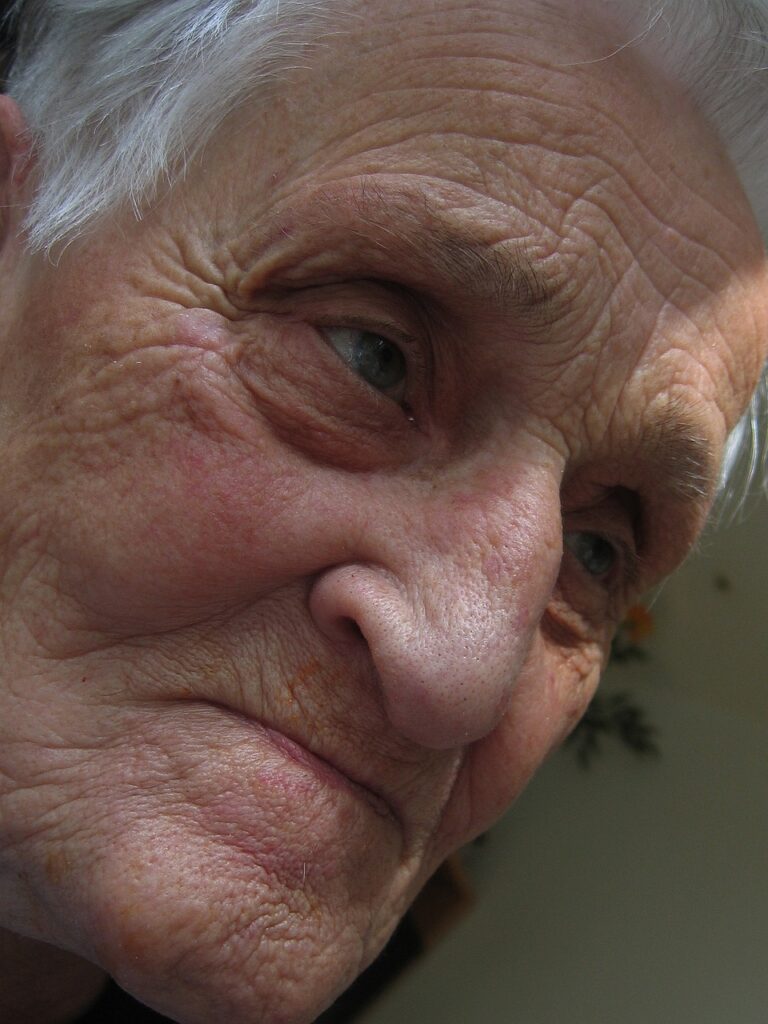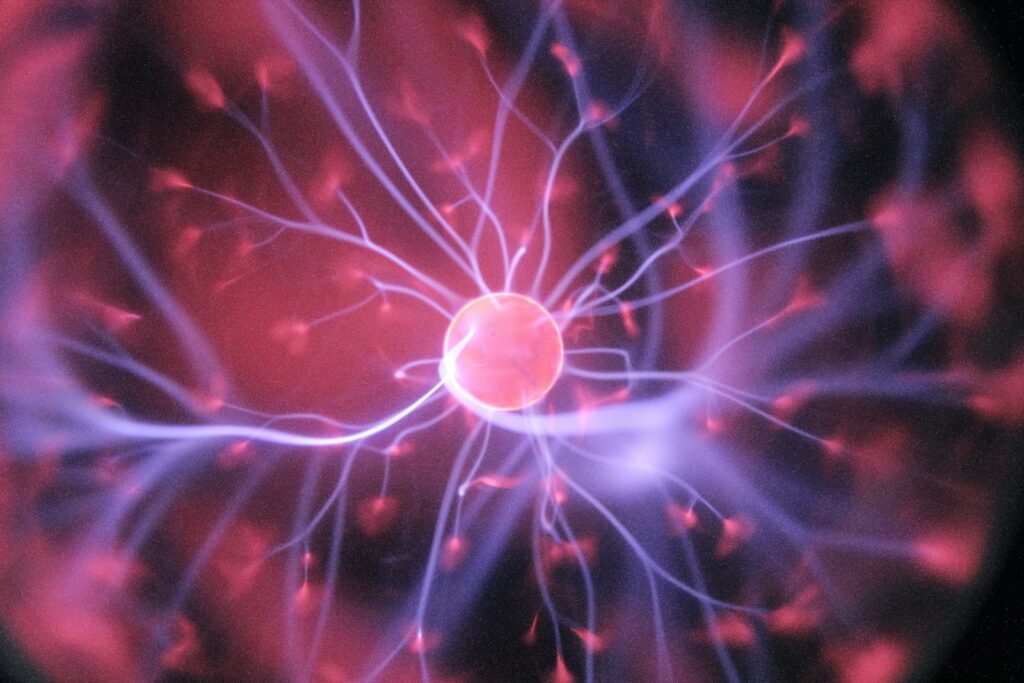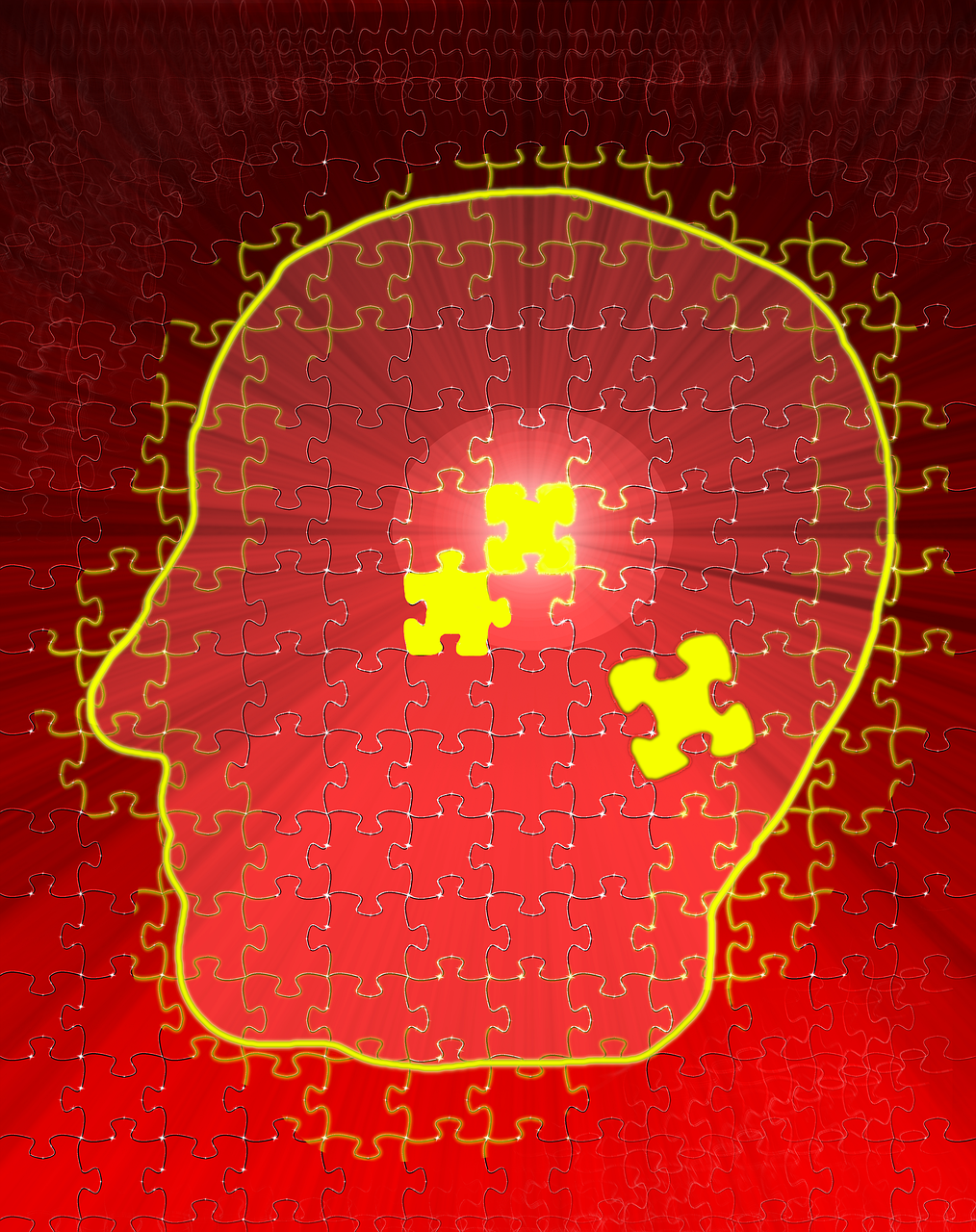Cognitive Decline
Understanding the Progression from Dementia to Alzheimer’s
Gain a deeper understanding of the progression from dementia to Alzheimer’s. Explore the brain changes and symptoms that occur over time. Support individuals and families affected.
Have you ever wondered about the journey from dementia to Alzheimer’s? In this article, we will explore the fascinating progression between these two conditions, shedding light on what happens in the brain and how symptoms develop over time. By gaining a deeper understanding of this process, we can better support individuals and their families affected by these life-altering conditions. So, grab a cup of tea and embark on this enlightening journey with us.

Understanding Dementia and Alzheimer’s
Dementia is a term used to describe a group of symptoms that affect a person’s cognitive abilities, such as memory, thinking, and communication. It is not a specific disease, but rather a syndrome that results from various underlying conditions. One of the most common causes of dementia is Alzheimer’s disease, which accounts for approximately 60-80% of all cases. Alzheimer’s disease is a progressive brain disorder that slowly impairs memory and thinking skills, ultimately leading to the inability to carry out daily activities.
Defining Dementia
Dementia is characterized by a decline in cognitive function that goes beyond what is considered a normal part of aging. It often begins with mild memory problems and progresses to more severe impairment over time. Common symptoms of dementia include forgetfulness, confusion, difficulty finding words, and challenges with problem-solving. The most noticeable and early symptom of dementia is memory loss, particularly with recent events and information.
Defining Alzheimer’s disease
Alzheimer’s disease is the most prevalent form of dementia, accounting for the majority of cases. It is a neurodegenerative disorder that causes a progressive decline in memory, thinking, and behavior. The disease is characterized by the presence of abnormal protein deposits in the brain, including amyloid plaques and neurofibrillary tangles. These deposits disrupt the normal functioning of brain cells, leading to their deterioration and eventual death.
Differentiating between dementia and Alzheimer’s
While Alzheimer’s disease is a specific form of dementia, it is essential to understand that not all cases of dementia are due to Alzheimer’s. Dementia can have various causes, including vascular disorders, frontotemporal dementia, Lewy body dementia, and Parkinson’s disease. Differentiating between dementia and Alzheimer’s requires a comprehensive evaluation by healthcare professionals, including medical history reviews, cognitive assessments, and diagnostic tests.
Factors Leading to Dementia and Alzheimer’s
Several factors contribute to the development of dementia and Alzheimer’s disease. While some risk factors cannot be modified, such as increasing age and genetic predisposition, others provide opportunities for prevention and management.
Age as a factor
One of the most significant risk factors for dementia and Alzheimer’s disease is advancing age. As individuals grow older, their risk of developing these conditions increases. While dementia is not a normal part of aging, the prevalence of the disease rises with age.
Genetic predisposition
Genetics plays a role in the development of dementia and Alzheimer’s disease. People with a family history of the condition face a higher risk of developing it themselves. Specific genes, such as the apolipoprotein E (APOE) gene, have been associated with an increased risk of Alzheimer’s disease. However, it is vital to note that genetic predisposition does not guarantee the development of the disease, and many cases occur in individuals without a family history.
Lifestyle choices
Certain lifestyle choices can influence the risk of developing dementia and Alzheimer’s disease. Factors such as a sedentary lifestyle, poor nutrition, smoking, excessive alcohol consumption, and lack of mental stimulation have been linked to an increased risk. On the other hand, adopting a healthy lifestyle, including regular physical activity, a balanced diet, mental engagement, and social interaction, may help reduce the risk or delay the onset of cognitive decline.
Medical conditions and risk factors
Various medical conditions and underlying risk factors can contribute to the development of dementia and Alzheimer’s disease. Cardiovascular diseases, such as high blood pressure, heart disease, and diabetes, have been associated with an increased risk. Additionally, conditions that cause chronic inflammation, such as obesity, sleep apnea, and depression, may also contribute to cognitive decline.
Early Signs and Symptoms of Dementia
Recognizing the early signs and symptoms of dementia is crucial for early detection and intervention. While the symptoms may vary among individuals, several common indicators point to the presence of the disease.
Memory loss
One of the earliest and most prominent signs of dementia is memory loss. This can manifest as forgetting recently learned information, relying on memory aids or reminders, or frequently misplacing belongings. Individuals may also experience difficulty in retaining new information or remembering important dates.
Cognitive decline
Dementia affects a person’s ability to think, reason, and problem-solve. This may manifest as difficulty concentrating, reduced attention span, decreased ability to organize and plan tasks, and impaired judgment. Individuals may struggle to complete familiar tasks or become easily confused, even in familiar environments.
Communication difficulties
As dementia progresses, individuals may experience challenges in expressing themselves verbally and understanding others. They may struggle to find the right words, repeat themselves frequently, or have difficulty following conversations. Changes in speech patterns and comprehension can significantly impact communication with loved ones and daily interactions.
Behavioral changes
Dementia can lead to significant changes in behavior and personality. Individuals may exhibit increased agitation, irritability, or aggression. They may demonstrate a lack of inhibition, engage in impulsive behaviors, or display socially inappropriate actions. Sleep disturbances, wandering, and restlessness are also common behavioral changes seen in dementia.
Mood swings and emotional instability
Dementia often affects a person’s emotional well-being. Individuals may experience rapid and extreme mood swings, ranging from sadness and tearfulness to anger or euphoria. They may become withdrawn, lose interest in favorite activities, or exhibit apathy towards their surroundings.
Progression of Dementia to Alzheimer’s
Dementia is a progressive condition, meaning it worsens over time. Alzheimer’s disease, as the most common cause of dementia, follows a predictable progression marked by distinct stages.

Stage 1: Preclinical Alzheimer’s disease
In the preclinical stage of Alzheimer’s disease, changes in the brain are already occurring, but symptoms are not yet noticeable. This stage can last for several years or even decades. Biomarkers, such as the presence of amyloid or tau proteins in the brain, can be detected through imaging or cerebrospinal fluid analysis.
Stage 2: Mild cognitive impairment
Mild cognitive impairment (MCI) is considered a transitional stage between normal aging and dementia. In this stage, individuals may experience mild memory problems and cognitive decline that is noticeable to themselves and close others. While some cases of MCI may progress to Alzheimer’s disease, not all individuals with MCI will develop dementia.
Stage 3: Mild Alzheimer’s disease
In the mild stage of Alzheimer’s disease, cognitive impairment becomes more noticeable. Memory loss may be more significant, and individuals may have difficulty finding the right words and interpreting spatial relationships. They may also exhibit changes in personality and have difficulty with tasks that require planning or organization.
Stage 4: Moderate Alzheimer’s disease
Moderate Alzheimer’s disease is characterized by a more pronounced decline in cognitive function. Memory loss becomes more severe, and individuals may struggle with daily activities, such as dressing or bathing. Behavioral and mood changes are more evident, and they may require increased assistance and supervision.
Stage 5: Moderately severe Alzheimer’s disease
At this stage, individuals with moderately severe Alzheimer’s disease require more extensive assistance and support. They may not remember their own address or phone number, have difficulty remembering the date or time, and may become disoriented in familiar settings. Assistance with activities of daily living, such as eating and grooming, is typically necessary.
Stage 6: Severe Alzheimer’s disease
Severe Alzheimer’s disease is marked by a severe decline in cognitive function and a significant loss of independence. Individuals may have difficulty recognizing loved ones, have limited verbal communication, and require assistance with all aspects of daily living. Physical impairments, such as difficulty walking and swallowing, may also be present.
Stage 7: Very severe Alzheimer’s disease
In the final stage of Alzheimer’s disease, individuals are almost entirely dependent on others for their care. They may lose the ability to speak, smile, or hold their head up independently. At this stage, they are vulnerable to infections and typically have a limited life expectancy.
Understanding the Brain Changes
To comprehend the progression of dementia and Alzheimer’s disease, it is essential to understand the underlying brain changes that occur.

Shrinkage of the hippocampus
The hippocampus, a region of the brain critical for memory formation and retrieval, is one of the first areas to be affected by Alzheimer’s disease. As the disease progresses, the hippocampus undergoes significant shrinkage, leading to memory impairments.
Formation of amyloid plaques
Amyloid plaques are clumps of abnormal protein deposits that accumulate between nerve cells in the brain. They are composed primarily of beta-amyloid protein, which is toxic to brain cells and interferes with their normal functioning. The presence of these plaques disrupts communication between neurons and contributes to cognitive decline in Alzheimer’s disease.
Build-up of neurofibrillary tangles
Neurofibrillary tangles are twisted fibers composed of a protein called tau. Tau tangles disrupt the transport of essential nutrients and molecules within neurons, eventually leading to their death. These tangles are a hallmark feature of Alzheimer’s disease and are closely associated with the cognitive decline seen in affected individuals.
Loss of nerve cells and connections
Alzheimer’s disease causes the progressive loss of nerve cells, or neurons, in various regions of the brain. These neurons are responsible for transmitting information and forming connections within the brain. As they degenerate and die, communication between different brain regions becomes compromised, leading to the wide range of cognitive and behavioral symptoms seen in dementia.
Effects on various brain regions
Alzheimer’s disease affects multiple brain regions beyond the hippocampus. The cerebral cortex, responsible for higher-order thinking, language, and decision-making, undergoes significant atrophy and dysfunction. Other regions, such as the frontal lobes and temporal lobes, which play a role in personality, language, and memory, are also affected. The accumulation of amyloid plaques and neurofibrillary tangles disrupts the normal functioning of these brain regions and contributes to the cognitive decline seen in Alzheimer’s disease.
Diagnosis and Assessment of Dementia and Alzheimer’s
Diagnosing dementia and Alzheimer’s disease involves a comprehensive assessment that includes various evaluation methods.
Medical history and physical examination
A thorough medical history is essential in diagnosing dementia and Alzheimer’s disease. Healthcare professionals will review the individual’s symptoms, family history, and any underlying medical conditions that may contribute to cognitive decline. A physical examination may also be performed to identify potential underlying causes or related health issues.
Cognitive and memory tests
Cognitive and memory tests evaluate an individual’s cognitive abilities, including memory, attention, language, problem-solving, and orientation. These tests help assess the severity of cognitive impairment and identify any specific areas of deficit.

Brain imaging techniques
Brain imaging techniques, such as magnetic resonance imaging (MRI) and positron emission tomography (PET) scans, can provide valuable information about brain structure and function. They can help identify shrinkage in specific brain regions, the presence of amyloid plaques, and changes in blood flow or metabolism, supporting the diagnosis of Alzheimer’s disease.
Laboratory tests
Laboratory tests may be conducted to rule out other potential causes of cognitive decline, such as vitamin deficiencies, thyroid dysfunction, or infection. Blood tests can also assess the levels of biomarkers associated with Alzheimer’s disease, such as APOE genotyping and amyloid proteins.
Treatment and Management Options
While there is currently no cure for dementia and Alzheimer’s disease, several treatment and management options can help alleviate symptoms and improve quality of life.
Medications for symptom relief
Several medications have been approved for the treatment of Alzheimer’s disease, primarily aimed at managing cognitive symptoms and slowing disease progression. Cholinesterase inhibitors, such as donepezil, rivastigmine, and galantamine, help improve cognitive function and delay symptom worsening. Another medication, memantine, may be prescribed to help regulate glutamate, a neurotransmitter involved in learning and memory.
Supportive therapies
Supportive therapies, such as occupational therapy, speech therapy, and physical therapy, can help individuals with dementia maintain independence and improve their daily functioning. These therapies focus on enhancing cognitive skills, promoting physical mobility, and addressing communication difficulties.
Behavioral interventions
Behavioral interventions aim to manage and modify problematic behaviors associated with dementia. Techniques such as reality orientation, validation therapy, and reminiscence therapy can help individuals feel more connected, reduce agitation, and enhance overall well-being.
Caregiver support and education
Providing support and education to caregivers is crucial for managing the challenges of dementia and Alzheimer’s disease. Caregivers often experience significant stress and emotional strain, and accessing resources, support groups, and educational programs can help them navigate the caregiving journey more effectively.
Clinical trials and experimental treatments
Clinical trials play a vital role in advancing our understanding of dementia and Alzheimer’s disease and exploring potential treatment options. Participation in clinical trials provides individuals and their families with access to cutting-edge interventions, experimental drugs, and innovative therapies that may have a significant impact on disease progression.

Preventing or Delaying Dementia and Alzheimer’s
While there is no guaranteed way to prevent or delay the onset of dementia or Alzheimer’s disease, certain lifestyle choices and interventions may help reduce the risk or slow the progression.
Maintaining a healthy lifestyle
Adopting a healthy lifestyle that includes regular exercise, a well-balanced diet, maintaining a healthy weight, and managing chronic conditions, such as hypertension and diabetes, may help reduce the risk of cognitive decline. Engaging in mentally stimulating activities, such as reading, puzzles, and learning new skills, also promotes brain health.
Engaging in cognitive activities
Studies have shown that engaging in cognitive activities, such as reading, learning new languages, playing musical instruments, or solving puzzles, may have a protective effect against cognitive decline. These activities help keep the mind active, strengthen neural connections, and promote neuroplasticity.
Managing chronic conditions
Chronic conditions, such as high blood pressure, diabetes, and obesity, have been associated with an increased risk of dementia and Alzheimer’s disease. Managing these conditions through regular medical check-ups, medication adherence, and lifestyle modifications, such as a healthy diet and exercise, may help reduce the risk or slow the progression of cognitive decline.
Controlling vascular risk factors
Vascular risk factors, such as smoking, high cholesterol levels, and sedentary lifestyles, have been linked to an increased risk of dementia and Alzheimer’s disease. Managing these risk factors through lifestyle modifications, such as smoking cessation, regular exercise, and a heart-healthy diet, may help prevent or delay cognitive decline associated with vascular-related dementia.
Social engagement and support
Maintaining social connections and engaging in meaningful relationships has been shown to have a positive impact on brain health. Staying socially active, participating in community activities, and cultivating strong social networks can contribute to mental well-being and may help reduce the risk of cognitive decline.
Challenges and Impact on Individuals and Families
Dementia and Alzheimer’s disease not only affect the individuals directly impacted but also have significant implications for their loved ones and caregivers.
Emotional toll on the affected person
Dementia and Alzheimer’s disease can have a profound emotional impact on the individual experiencing cognitive decline. As their memory, abilities, and independence diminish, individuals may feel frustrated, frightened, and isolated. They may struggle with self-identity, experience a loss of autonomy, and face challenges in maintaining relationships with others.
Strain on family relationships
Caring for a loved one with dementia or Alzheimer’s disease can be emotionally, physically, and financially demanding. Family members may experience stress, anxiety, and exhaustion as they manage the responsibilities of caregiving, balance their own needs, and witness the decline of their loved one. These challenges can strain relationships and lead to conflicts within the family unit.
Financial burden and caregiver stress
The cost of caring for a person with dementia or Alzheimer’s disease can be substantial. Medical expenses, home modifications, and long-term care services can place a significant financial burden on families. Additionally, caregivers may experience elevated levels of stress, anxiety, and burnout as they navigate the complexities of providing care and managing the challenges associated with the disease.
Lack of awareness and societal stigma
Dementia and Alzheimer’s disease still face societal stigma, misconceptions, and lack of awareness. This can result in delayed diagnosis, limited access to resources and support, and increased challenges for individuals and families affected by the disease. Raising awareness, challenging stigma, and promoting dementia-friendly communities are essential steps towards supporting those impacted by dementia.
Research Advances and Future Perspectives
Research in the field of dementia and Alzheimer’s disease continues to advance, offering hope for improved treatments, earlier detection, and enhanced caregiver support.
Emerging treatment options
Emerging treatment options focus on targeted approaches to modify disease processes, such as reducing amyloid plaque accumulation, inhibiting tau tangle formation, or promoting neuroprotective mechanisms. Immunotherapies, gene therapies, and regenerative medicine are among the promising areas of research that may contribute to future treatment options.
Genetic studies and personalized medicine
Advancements in genetic studies have shed light on the complex interplay between genes, environment, and disease development. Genetic testing and analysis can help identify individuals at higher risk and inform personalized treatment plans. Precision medicine approaches, tailored to an individual’s unique genetic profile, hold the potential for more effective interventions and improved outcomes.
Advancements in early detection methods
Early detection of dementia and Alzheimer’s disease is crucial to initiate timely interventions and support for affected individuals and their families. Researchers are exploring innovative methods, such as blood-based biomarkers, neuroimaging techniques, and artificial intelligence approaches, to enhance the accuracy and accessibility of early diagnosis.
Improving caregiver support and resources
Recognizing the challenges faced by caregivers, efforts are underway to develop and enhance support services and resources. This includes caregiver training programs, respite care options, and the creation of dementia-friendly communities that prioritize the well-being of individuals with dementia and their caregivers.
Global efforts in research and awareness
Research and awareness efforts around dementia and Alzheimer’s disease have gained momentum on a global scale. International collaborations, funding initiatives, and public health campaigns are driving progress in understanding the disease, reducing stigma, and improving the lives of those affected.
In conclusion, understanding dementia and Alzheimer’s disease requires knowledge of the symptoms, underlying brain changes, diagnostic methods, and available treatment options. While there is no cure for these conditions, early detection, supportive interventions, and lifestyle modifications can have a significant impact on quality of life for individuals living with dementia and their caregivers. Continued research, awareness, and advocacy efforts hold promise for advancing our understanding and improving the future outlook for those affected by dementia and Alzheimer’s disease.
















